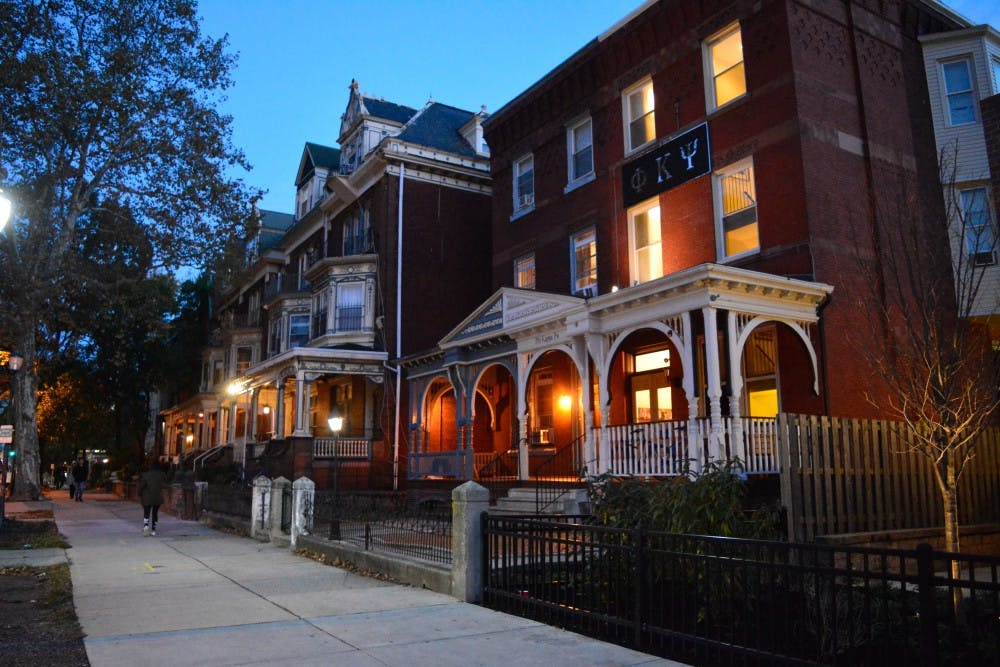The Intercultural Greek Council, Penn's governing body of culturally-based fraternities and sororities, took a major step toward encouraging interactions between IGC member groups on Nov. 8.
The IGC consists of three separate national councils: the National Pan-Hellenic Council, the National Association of Latino Fraternal Organizations, and the National Asian Pacific Islander Desi American Panhellenic Association.
Last month, the IGC approved the creation of an internal collaboration fund to provide grants for events promoting interactions between IGC member groups. Events involving members from different member groups under the same umbrella cultural council are eligible to receive a $50 grant, while events involving members from multiple councils are eligible to receive a $100 grant.
The IGC approved the first grant on Nov. 8 for four sororities co-hosting a discussion focused on the Mirabal Sisters, four historic feminist political figures from the Dominican Republic, said Lambda Upsilon Lambda Vice President and College junior José Lopez. The event, which will be held in Steinberg-Dietrich Hall on Nov. 15, is co-hosted by Sigma Lambda Upsilon, Lambda Theta Alpha, Alpha Kappa Alpha, and Delta Sigma Theta.
Sigma Lambda Upsilon President and College senior María Arévalo González said the event will tie this historic example of resistance with "how white culture and beauty have been imposed on communities of color."
Organizers said that while they planned to host the event before the creation of the fund, they appreciated another source of grant money.
"We get more validation for things we are already trying to do because we have more funds for events we've planned," President of Delta Sigma Theta Sorority and College senior Mara Abera said.
The fund will provide event organizers $100, much of which will cover the cost of food.
RELATED:
This site ranks Penn's Greek institutions by looks and popularity. Greek leaders call it a 'joke.'
It's still fall, but Greek organizations are already preparing freshmen for rush in the spring
"Our community has a lot of groups and they're all different, but a result of having so much diversity is that we don't have a coherent fabric to bond over," IGC President and College senior Angie Wang said. "It's an issue where people tend to be very insular within communities they're comfortable with."
Chapters interested in receiving funding need to plan an event, submit an online application, and present their proposal at an IGC general body meeting, where members vote to approve the grant.
The fund is supported by IGC member dues. Wang said that prior to the fund's creation, constituents worried whether the money from dues was being used effectively.
Abera said the collaboration fund addresses a common struggle of acquiring money for events.
Unlike events hosted by other student groups, events hosted by Greek institutions are not recognized by the Student Activities Council and are not eligible to receive SAC funding, Abera said. As a result, the IGC chapters, which are generally smaller and collect fewer dues than fraternity and sorority chapters under the Interfraternity Council and the Panhellenic Council, often have to rely on their own fundraising to host events.
Abera said some groups such as the Latinx Coalition and UMOJA sometimes fund events for specific chapters, but added that IGC member groups lack sources of funding specifically made for them.
Wang said the fund can award two $50 grants and two $100 grants per semester. She added that she hopes fundraising can increase the number of grants in the future and that she hopes this initiative will influence campus culture overall.
"If you've ever been to ARCH you'll notice that the same groups of people will hang out within themselves and kind of insulate themselves," she said. "I hope that starting small at the IGC can catalyze the rest of the minority community at Penn to interact more."



